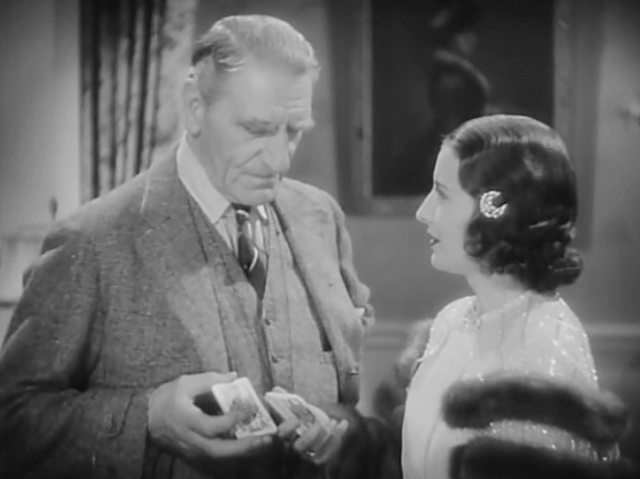 |
| David Manners and Kay Francis in Man Wanted |
Man Wanted is an arch, sophisticated romantic comedy that needed an Ernst Lubitsch to handle its racy moments and a Howard Hawks to handle its snappy dialogue. William Dieterle was a good director, but he was neither of those men, so the movie feels slow when it should be lively, choppy when it should be speedy. The premise is this: Lois (Kay Francis) is a high-powered career woman, the editor of a magazine, married to a wealthy playboy (Kenneth Thomson) who cares more about playing polo and chasing other women than he does about their marriage. So when Tom (David Manners), a salesman for exercise equipment, pays a sales call on Lois and reveals that he knows shorthand -- from taking notes in his classes at Harvard -- he gets hired to replace the secretary she has just fired. You can fill in the rest. Francis carries a lot of the film on charm, even when the situations feel over-familiar and the dialogue doesn't sparkle the way it should. Check out her work for Lubitsch in Trouble in Paradise, made the same year as this film, to see what might have been. Manners, best known today for his work in the horror movies Dracula (Tod Browning, 1931), The Mummy (Karl Freund, 1932), and The Black Cat (Edgar G. Ulmer, 1934), is a pleasantly forgettable leading man, and Andy Devine and Una Merkel are miscast as Tom's buddy and girlfriend, providing comic relief that doesn't quite relieve.










